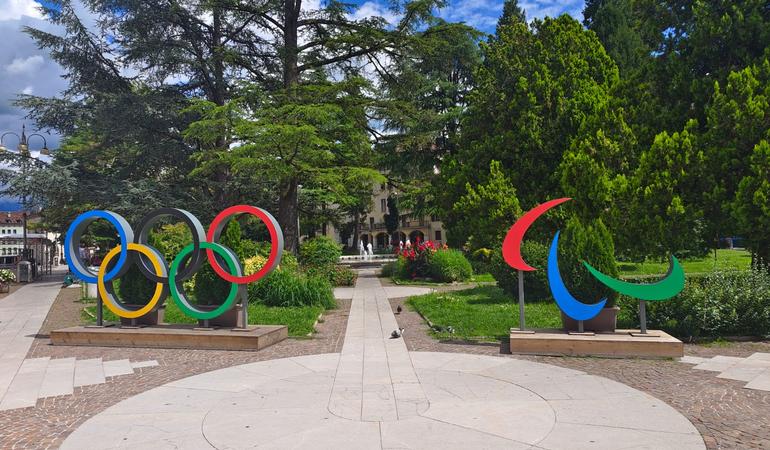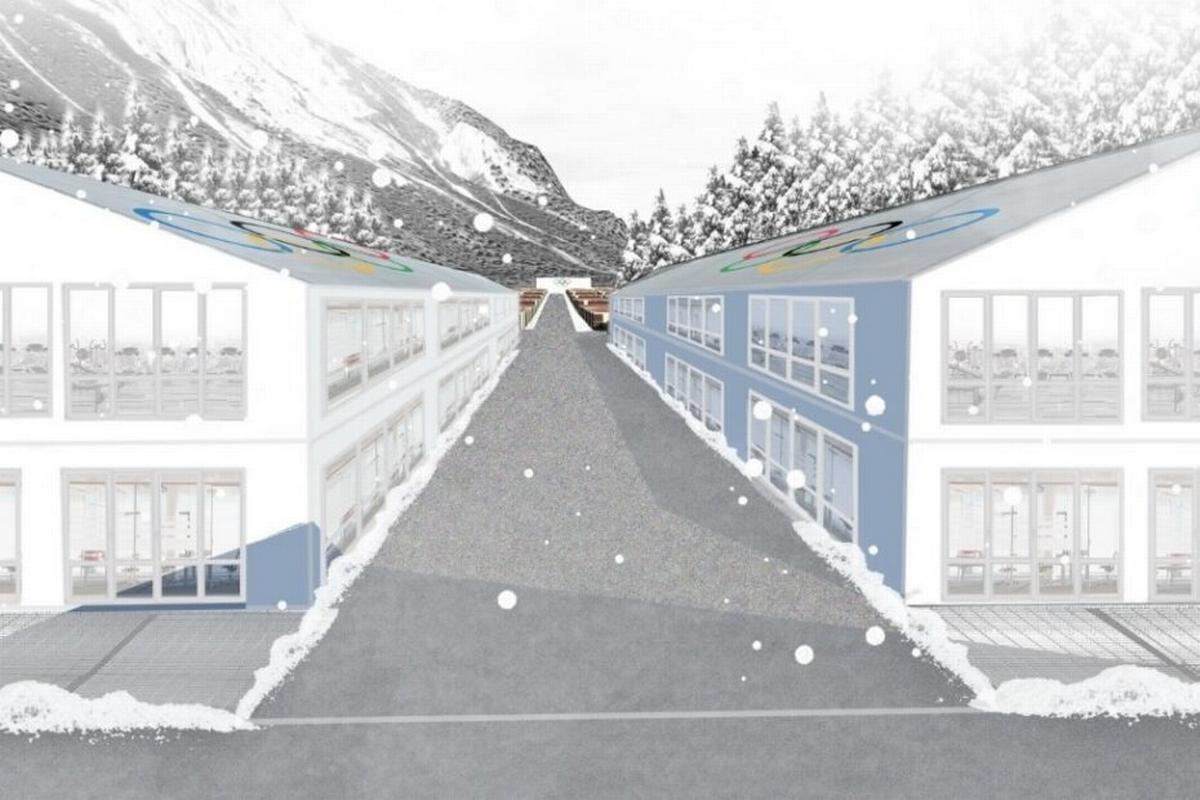
Il forum sull'eredità olimpica di Milano-Cortina 2026 non è mai entrato in funzione

Elena CiccarelloDirettrice responsabile lavialibera



2 dicembre 2024
In Italy, nothing is more permanent than temporary. It is enough to see what is happening with the Olympic village planned for the 2026 Winter Olympics in Cortina d'Ampezzo, a work that was supposed to be dismantled at the end of the event and instead will remain standing for at least another two years. On 29 November, the town council approved a convention scheme with the company Simico (Società infrastrutture Milano Cortina) and the Mico Foundation for the temporary use of the Fiames area, where the Olympic village will be built.
Civil society groups start a civic monitoring on the Milano-Cortina Winter Olympics
The Olympic village will be built in the area of the former airport owned by the municipality, an area of about 98,000 square metres. In the candidacy dossier, the project - which enjoys a funding of over 39 million euro - envisages the construction of a series of converted sea containers and prefabricated housing modules, capable of accommodating up to 1,400 guests. According to the initial agreements, the modules were to be rented and dismantled at the end of the event, but the convention voted by the city council changes the cards on the table, inserting the option for Simico to maintain the infrastructure even for the year after the Games, with the possibility of extending it for a further 12 months.
A distortion with respect to the provisions of the Olympic dossier, which specifies the temporary nature of the village, but also with respect to the same authorisation process undertaken by Simico, which had explained in a press note on 11 June 2024, at the conclusion of the decisive Services Conference on the village: "The concept of sustainability underlies the design strategies, which are aimed at minimising the impact of the intervention, with the recovery of structures, the recyclability of materials, energy efficiency and the use of renewable energy sources. The construction will take place in three phases: construction of the infrastructure, preparation for the Games and subsequent dismantling and disassembly at the end of the sporting event'.
The dismantling of the site had also been confirmed at the end of October by the president of the Veneto Region, Luca Zaia, who had specified at the microphones of Radio Cortina: "It will be built and dismantled, that is, disassembled," adding: "At the beginning we tried to make an operation to keep at least part of the Olympic village fixed for the workers. Then there was a position against this possibility. So now we are going to rent containers: a nice village will be built, then it will be dismantled also to avoid the legacy being a container dump'.
Zaia had intervened after the words of the president of the Cortina Hoteliers' Association Stefano Pirro, who had asked for the village to be used as guest quarters for the workers: "The reconversion would at least partially resolve a critical issue endemic to our sector and would also justify the expenditure for the village itself. It is a solution that would benefit the entire Ampezzo community and the tourism industry in the Dolomites, especially in view of future major events. We would therefore be very happy if the prospect came true'.
The agreement voted by the municipality seems to please the Cortina hoteliers, although there is no certainty at the moment about the final destination of the containers.
Italy and Turkey together for Euro 2032: more profits and less rights
The minority councillor of Cortina Bene Comune, Roberta de Zanna, harshly contested the town council's decision not to demolish the village at the end of the Games: 'It was always said that it would be dismantled, while today Simico is given the chance to keep it for a year, and then another year more. Lies and more lies, what would then be the public interest for the municipality to keep the village? Have we abandoned the concept of temporariness?".
The councillor then dwelled on a number of inconsistencies that would make the convention unworkable: "Simico can operate until 31 December 2026, so after this date it is not legitimised to take on new contractual obligations. Who will bear the cost of removing the huts after the Games?". Questions that currently have no answer.
Behind the decision to dismantle the Olympic village there is a precise reason: the plain of the Fiames airfield, adjacent to the Boite torrent, presents a high hydrogeological risk and is therefore not a place that can be considered safe in the long term. For this reason, a proposal had been made to build the site in the former Eni village of Borca di Cadore, which is about 15 km from Cortina. An area large enough to accommodate the facilities and already equipped with essential services. Moreover, once settled, it would be converted into a centre to be reused after the Olympics, enhancing the area in the long term. The proposal had the mayor of Borca di Cadore, Bortolo Sala, as its main sponsor, and was also shared by the president of the Province of Belluno, Roberto Padrin, who said that the site, once the Games were over, could host seasonal workers and be reconverted into a university campus.
A sustainable and less costly solution, welcomed by the trade unions and Confindustria Belluno, which, however, had not been taken into consideration by the government's extraordinary commissioner Luigivalerio Sant'Andrea (later relieved of his duties), who had judged the site to be 'too far from Cortina'.
La tua donazione ci servirà a mantenere il sito accessibile a tutti
Olimpiadi di Milano-Cortina 2026: tutte le promesse tradite
La tua donazione ci servirà a mantenere il sito accessibile a tutti